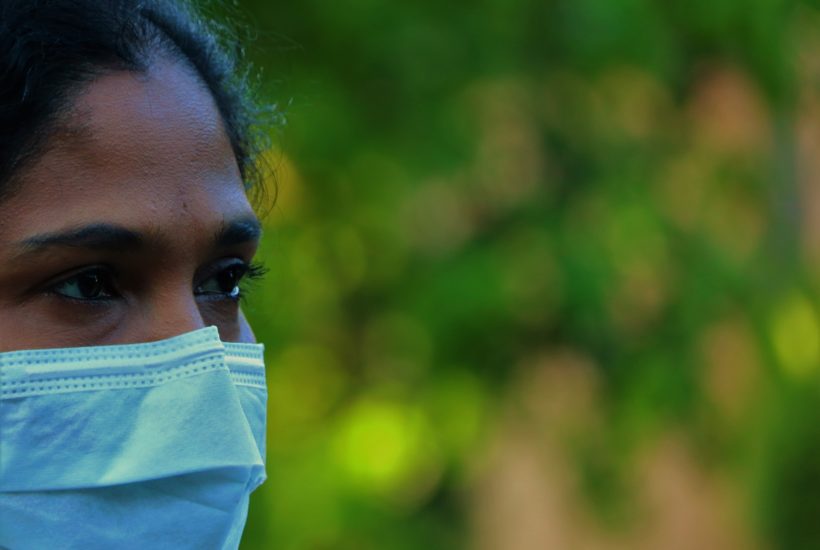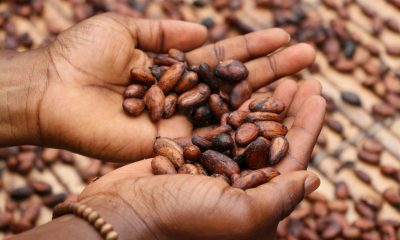Africa
The Economic Commission for Africa comes with a plan for deconfinement
Governments around the world face the challenge of implementing exit strategies from the health crisis. In Africa, the Economic Commission for Africa has reflected on this in recent days with a panel discussion and a report entitled “Covid-19. Deconfinement Strategies for Africa.” One of the most sensitive issues facing African leaders is the impact of containment measures on food security.

Even if Africa will resist the alarmist predictions of contamination, several factors will undoubtedly affect the exit strategy of each country. It should be noted that in order to limit the spread of the virus, at least 42 African countries have implemented partial or complete closures. But what is the continent’s room for maneuver while the dynamics of contamination remain on the rise? It is clear that the African continent must strike a delicate balance between protecting lives while mitigating the economic effects and continuing to eradicate the spread of the new coronavirus.
Discover more about ECA’s plan to revive the economies on the continent and read the most important economic news in the world with the Born2Invest mobile app.
Containment with disastrous consequences in Africa
There are several reasons for ECA’s mobilization: according to its calculations, a full month of lock-in across Africa would cost the continent about 2.5% of its annual GDP or $65 billion per month. This projection is distinct and is in addition to the broader external impact of the COVID-19 crisis on Africa, resulting from the decline in commodity prices and investment flows.
All experts also agreed that Africa cannot withstand such prolonged containment, especially as 40% of the continent’s population struggles to survive on a day-to-day basis, as food shortages intensify.
The main challenge reported by African companies is declining demand: “Containment measures have created serious problems for African economies, including reduced demand for products and services, a shortage of operating cash flow, reduced opportunities to meet new customers, the closure of some businesses. In addition, changing business strategies and the need to offer alternative products and services, lower production and productivity of workers working from home, problems with logistics and product shipment, and difficulties in sourcing essential raw materials for production.” One of the most sensitive issues facing African leaders is the impact of containment measures on food security. Sub-Saharan Africa imports $35 billion worth of food every year.
Adapting responses to the realities of each country
As a result, the Economic Commission for Africa has developed a seven-point strategic plan for the shock that ensures sustainable, albeit reduced, economic activity.
The stakes are high for the African continent at a time when the world is going through a period of global decline. ECA has scrutinized some of the exit strategies that have been proposed or tried around the world, but at the same time it has highlighted the risks they would pose to African countries. According to the UN agency, it is essential that African countries take advantage of this delay in the spread of the pandemic to learn from the experience of other regions, as well as from their experiences of deconfinement. For example, for countries such as Morocco or Nigeria, which have a high proportion of tests showing positive cases, considering deconfinement too quickly would be risky.
The appropriateness of different exit strategies for each country depends on the characteristics and exposure status of that country to COVID-19. It is therefore recommended that countries with rapidly increasing cases maintain strict containment measures or adapt deconfinement by sector. Countries in North and Southern Africa are known to tend to impose the strictest containment measures. This is consistent with the prevalence of known co-morbidities, such as chronic respiratory diseases, which are most prevalent in North Africa, and HIV/AIDS, which is particularly prevalent in Southern Africa.
“African states can relax containment measures as infections decline and reimpose them if they begin to exceed intensive care capacity. These measures would require regular shutdowns for two-thirds of the year, which would make little difference to permanent containment from an economic standpoint. Africa has limited hospital capacity and would, therefore, be rapidly overwhelmed, with a definite impact on the number of deaths.”
“It’s not about containment. It’s about protecting lives. Containment is costing us an incredible $65 billion a month. We can’t afford it, but we can’t afford to lose lives either, so we need to find quick decontainment strategies that would allow us to get back to growth in a sustainable way.”
“We need wise containment measures that result in smart deconfinement measures where the most vulnerable and local communities are truly preserved in terms of quality of life,” said Ibrahim Assane Mayaki, Director General of the New Partnership for Africa’s Development (NEPAD) Agency. He said that as Africa moves towards openness, there are two critical conditions necessary to ensure the success of deconfinement strategies, namely data availability and coordination. “If you don’t have the right data to know the right numbers, the right tracking, the right processing, then your deconfinement strategy is affected in terms of effectiveness,” he said.
Vietnam as a possible model for Africa
Much remains to be done for deconfinement strategies to be successful. “The spread of the virus continues to accelerate by about 30 % per week in many African countries,” the ECA headquarters in Addis Ababa said.
However, one model is highlighted: that of Vietnam. “The lower-middle-income country with a per capita GDP similar to Ghana or Zimbabwe shares a 1,400 km border with China and has recorded only 271 cases and no deaths related to the Covid-19 pandemic as of May 5th, 2020,” the Commission said.
This may be a little underestimated, but validated by John Hopkins University. In any case, for the ECA, it is difficult to cite a better example. Vietnam has a population of more than 95 million, which makes mass testing difficult and costly, but thanks to a strategy based on early awareness of the threat and strict isolation of infected people the country has managed to contain the pandemic.
__
(Featured image by Caniceus via Pixabay)
DISCLAIMER: This article was written by a third party contributor and does not reflect the opinion of Born2Invest, its management, staff or its associates. Please review our disclaimer for more information.
This article may include forward-looking statements. These forward-looking statements generally are identified by the words “believe,” “project,” “estimate,” “become,” “plan,” “will,” and similar expressions. These forward-looking statements involve known and unknown risks as well as uncertainties, including those discussed in the following cautionary statements and elsewhere in this article and on this site. Although the Company may believe that its expectations are based on reasonable assumptions, the actual results that the Company may achieve may differ materially from any forward-looking statements, which reflect the opinions of the management of the Company only as of the date hereof. Additionally, please make sure to read these important disclosures.
First published in LePoint, a third-party contributor translated and adapted the article from the original. In case of discrepancy, the original will prevail.
Although we made reasonable efforts to provide accurate translations, some parts may be incorrect. Born2Invest assumes no responsibility for errors, omissions or ambiguities in the translations provided on this website. Any person or entity relying on translated content does so at their own risk. Born2Invest is not responsible for losses caused by such reliance on the accuracy or reliability of translated information. If you wish to report an error or inaccuracy in the translation, we encourage you to contact us.

-

 Crypto2 weeks ago
Crypto2 weeks agoIntesa Sanpaolo Signals Institutional Shift With Major Bitcoin ETF Investments
-

 Markets7 days ago
Markets7 days agoRice Market Slips as Global Price Pressure and Production Concerns Grow
-

 Crypto2 weeks ago
Crypto2 weeks agoBitcoin Wavers Below $70K as Crypto Market Struggles for Momentum
-

 Biotech4 days ago
Biotech4 days agoInterministerial Commission on Drug Prices Approves New Drugs and Expanded Treatment Funding

























